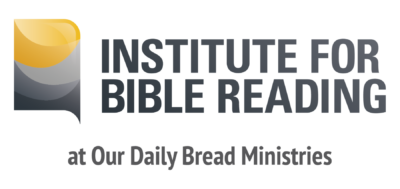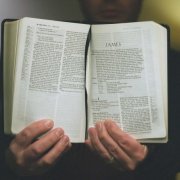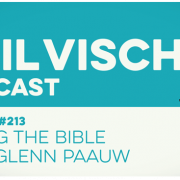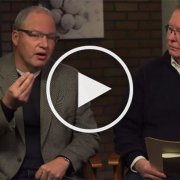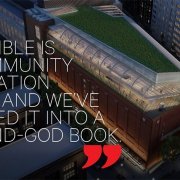Is Bible Literacy The Right Goal?
I have only recently understood the difference between “literacy” and “fluency” when it comes to the Bible.
Like most, I grew up with reference Bibles that were formatted for study, but not necessarily for reading. Like any good reference work (think dictionary, encyclopedia, textbook), the chapters, verses, subheadings, footnotes, cross-references, and other well-meaning additives were designed to make it easier to “reference” content. But it turns out they were also barriers to simply reading and losing myself in the story. There wasn’t a clear invitation to just read, to read unencumbered, to read for distance, or even to read for enjoyment. And as such, it was more difficult to find myself in the story.
 In fact, most of my life with the Bible has been constrained by that reference format, leading to the inevitable outcome of lots of study, mastering propositions and doctrine, sword drills around individual verses, ensuring a clear “world view” and so on. Per the definition of literacy, I would say I am actually pretty “literate” when it comes to the Bible. I developed a certain level of competence or knowledge about the Bible, including memorizing lots of verses. And I did it through diligent, personal quiet times.
In fact, most of my life with the Bible has been constrained by that reference format, leading to the inevitable outcome of lots of study, mastering propositions and doctrine, sword drills around individual verses, ensuring a clear “world view” and so on. Per the definition of literacy, I would say I am actually pretty “literate” when it comes to the Bible. I developed a certain level of competence or knowledge about the Bible, including memorizing lots of verses. And I did it through diligent, personal quiet times.
But when it comes to “fluency” with the Bible—which is defined as “the ability to express oneself readily, effortlessly, and articulately”— I don’t feel nearly as confident. An educator referencing the 21st Century Fluency Project describes the difference between literacy and fluency this way: “To be literate means to have knowledge or competence. To be fluent is something a little more, it is to demonstrate mastery and to do so unconsciously and smoothly.”
When it comes to the Bible, I am not nearly as fluent as I am literate. And the data seems to indicate I am not alone! Being able to confidently relay the complete story of the Bible, to delineate the different types of literature that combine to form our canon, to easily recognize historical context and linkages between the major sections of the Bible is very different from being literate about the Bible. Glenn Paauw in his new book, Saving the Bible from Ourselves, (InterVarsity Press, May 2016) talks about the Bible as drama and describes what I mean by fluency this way: “to become so immersed in the script of (all) the acts of the Bible that we come to know this story in our bones.” He goes on to say, “We have virtually no chance of playing our parts well if we don’t really know how the full story goes.” I am not nearly as confident in my ability to accurately tell the complete story of the Bible, with all its majesty, mystery and nuance. Are you? Literacy is different than fluency. I’m convinced that to read the Bible well, I need to leverage literacy with greater fluency.
The first Reformation ushered in mass access to what we now know as “reference Bibles.” Perhaps on the 500th anniversary of Luther’s 95 Theses next October, God’s Spirit will usher in a renewed reformation of deeper Bible absorption via mass use of “reading Bibles” as communities gather in conversations around the Text. Perhaps we can build on whatever level of literacy we have by deepening our fluency with God’s amazing creation and restoration story.
